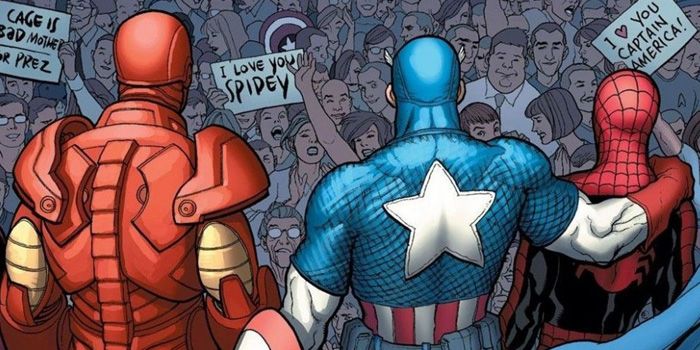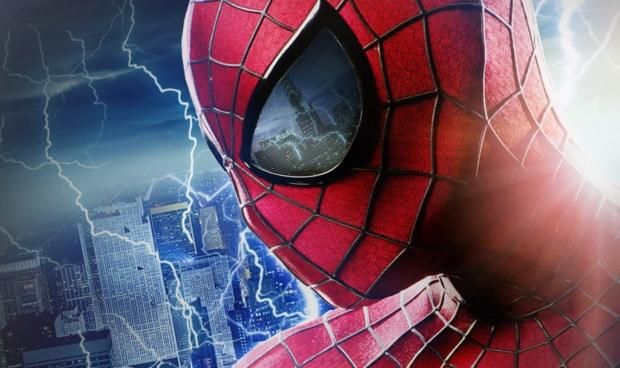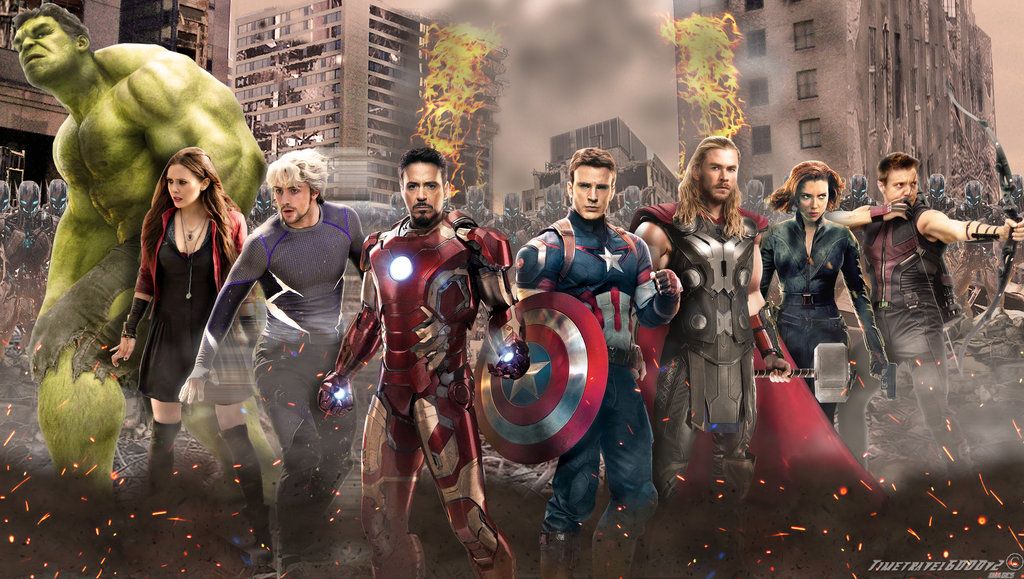Now that we've all giddily watched the latest trailer for Marvel's Avengers: Age of Ultron, we can all agree it needed more Spider-Man. Now that Marvel Studios is free to use the web-head in its ever-expanding cinematic universe, it's kind of all you want to see, right?
Spider-Man is unique in that, despite not having the best box-office track record recently, he's the most profitable superhero in the world. Slap his face on a lunchbox orT-shirt and it will move more cash than Batman, and that's saying a lot. There's something universal about the Spider-Man story (if you ignore the Spider-Totem arc -- and I do); he's not a billionaire, gifted with an Übermensch's physique, or born into greatness. He's just a guy who took the circumstances life gave him and set out to make a better world. He's one of the few heroes with a full face mask that hides every element of his identity. His world is our world, in that he lives in New York City and swings by places we recognize.
And there's nothing inherently race-specific about his story.
People of all colors and backgrounds have grown up in New York City, gone to a public high school and taken a field trip. There is nothing exclusively "white" about being smart, being raised by an extended family, feeling like an outsider or using what power you have with great responsibility. It's kind of interesting how there's only one fantastical element to Peter Parker's story, and that's the spider-bite. What really makes him a hero is what Peter decides to do after the death of Uncle Ben.
Not every hero of color has to represent that particular race, nor does he have to be defined by that trait. With characters like Storm, Black Panther, Isaiah Bradley, or Luke Cage, to a certain extent, being a black is an essential part of their character and narrative; to remove their ethnicity would be to remove a part of who they are. Misty Knight is a police officer who lost a limb and now fights crime with a cyber arm; none of that has to do with her being black. But she is, and her character is enhanced by that perspective.
When Spider-Man debuts in the Marvel Cinematic Universe, it's going to be huge. Peter Parker is in a bit of a slump at the moment, both in terms of relatability and exposure. Whereas Spider-Man is known world-wide, his essential alter-ego hasn't been featured much in the comics. The past two events involved an impostor taking his place and a plethora of other Spider-People, and in both instances he was kind of lost in the shuffle. His romantic interest, always an important part of the story, is even being dictated by the Spider-Totem or pheromones or something outside his own heart. It feels like what Peter Parker wants within his own story has become irrelevant. The Amazing Spider-Man has become a difficult title for me to recommend to new readers because I'm not really sure what it's about anymore.
The Marvel movies have rejuvenated heroes and put unknown characters on the map: Iron Man got his groove back in the comics thanks to Robert Downey Jr., and the Guardians of the Galaxy made a dancing tree sprig into a household name. As much as I would rather fans get their first understanding of comic book heroes through the comics themselves, movies are going to reach a broader audience. I guess this is how high school teachers feel about movie adaptations of Shakespeare?
Still, the films are a direct way for fans to get an idea of who these characters are behind the trademarked logos; it's one thing to be the most merchandisable superhero in the world, it's another thing to be the most understood. It's what takes our heroes from being two-dimensional images into fully formed characters we can follow from adventure to adventure and heartache to triumph. Our heroes can't and shouldn't look the same; they should reflect our society and our hopes. We want the world to be more accepting and open to new ideas, cultures and walks of life. Our heroes should champion the same.



